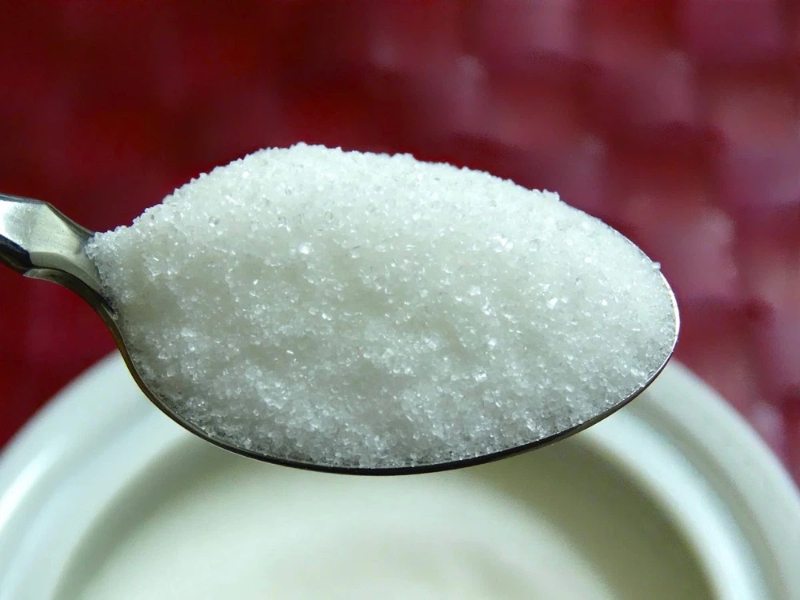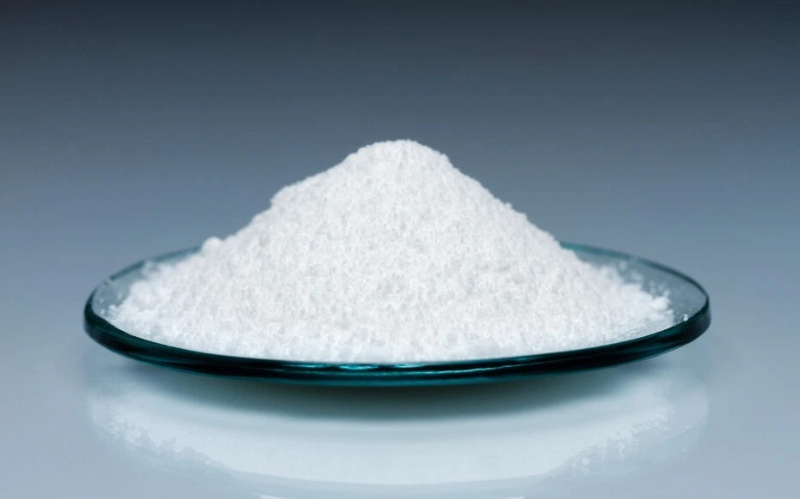







Content Menu
● How the Evidence Is Interpreted
● Communicating with Health Professionals and Consumers
● Alternatives and Complementary Solutions
● The Role of Our Factory in Global Markets
● Practical Guidance for Product Development
● Language, SEO, and Global Outreach
● Practical Industry Considerations for OEM/ODM Partnerships
● Safety and Public Health Context
● Continuation: Integrating Research with Practice
● FAQ
>> 1. Does Aspartame raise blood sugar levels?
>> 2. Is Aspartame safe for people with diabetes?
>> 3. Can artificial sweeteners cause weight gain or affect diabetes risk?
>> 4. Are there better alternatives to Aspartame for diabetics?
>> 5. What should manufacturers consider when using Aspartame in products for international markets?
Our factory specializes in natural sweeteners, functional polyols, and dietary fibers for the food, beverage, and healthcare sectors, offering blended-sweetener development, tablet production, and OEM/ODM services to foreign manufacturers. This article examines the question of whether Aspartame causes diabetes, summarizes current scientific insights, and explains how our capabilities support global partners in delivering healthier, regulatory-compliant formulations. The goal is to present a balanced, evidence-based view suitable for clinicians, regulators, and industry stakeholders, while aligning with international market needs and regulatory environments.

Aspartame is a low-calorie artificial sweetener approximately 200 times sweeter than sucrose. In many product formulations, it enables sugar reduction without sacrificing sweetness, supporting reduced caloric intake and potentially improved dietary quality for some consumers. In the context of diabetes management, Aspartame has historically been considered compatible with many dietary plans because it does not provide a straightforward glucose load. Yet the metabolic implications of long-term Aspartame consumption remain a topic of active research, particularly regarding indirect effects on weight, appetite, gut microbiota, and insulin signaling pathways.
- Short-term metabolic responses: Across various human studies, Aspartame does not consistently raise postprandial glucose or insulin when used as a sugar substitute, particularly in individuals without obesity or metabolic syndrome. This aligns with the shared understanding that Aspartame itself has little or no direct glycemic impact in typical serving sizes.
- Long-term and indirect effects: A growing body of research probes whether long-term Aspartame exposure could influence weight dynamics, appetite regulation, or gut microbiota composition, which in turn might affect diabetes risk indirectly. Some studies report no clear adverse metabolic outcomes, while others raise questions about potential associations with weight gain or altered glucose tolerance in certain populations. The heterogeneity of study designs and populations complicates definitive conclusions.
- Systematic reviews and regulatory perspectives: Comprehensive reviews emphasize cautious interpretation due to variability in study quality, duration, and endpoints. The prevailing stance remains that Aspartame is safe within established intake limits, but recommendations may vary with individual health status, cultural dietary patterns, and regulatory frameworks in different regions.
- Balanced messaging: Emphasize that Aspartame competes with sugar by delivering sweetness with minimal caloric contribution, which can support caloric reduction in diabetes management when used within an overall healthy diet.
- Acknowledge uncertainties: Clearly state that while Aspartame does not acutely elevate blood glucose in most settings, long-term metabolic effects, potential taste adaptation, and interactions with other dietary components require ongoing scrutiny.
- Regulatory clarity: Highlight that acceptable daily intake (ADI) limits exist and are enforced by authorities worldwide, and that formulations should comply with labeling and safety standards in each market.

- Natural sweeteners: Stevia, monk fruit (mogrosides), and other plant-based options offer sweetness with distinct metabolic profiles and regulatory considerations.
- Polyols (sugar alcohols): Erythritol, xylitol, sorbitol, and others provide reduced caloric impact and may have different glycemic responses; some options may cause gastrointestinal sensitivity in certain individuals.
- Dietary fibers: Soluble and insoluble fibers can modulate satiety, glycemic response, and digestive health, providing functional benefits beyond sweetness.
- Blended formulations: Combining Aspartame with other sweeteners or fiber/alcohol components can optimize taste, sweetness duration, and regulatory acceptability for target markets.
- Core competencies: We specialize in natural sweeteners, functional polyols, and dietary fibers, enabling a broad spectrum of formulation options for international clients.
- Services for overseas manufacturers: We provide blended-sweetener development, tablet production, and comprehensive OEM/ODM capabilities to meet diverse regulatory requirements and consumer preferences.
- Quality, safety, and regulatory support: Our processes emphasize robust quality assurance, traceability, and documentation to support compliant product introductions in global markets, including labeling, allergen management, and country-specific regulatory submissions.
- Formulation strategy: When designing products for markets with high diabetes prevalence, consider reducing simple sugars, exploring Aspartame-containing blends, and incorporating natural sweeteners and fibers to address both taste and health goals.
- Shelf stability and taste profile: Evaluate sweetness onset, duration, and aftertaste in blended formulations to maintain consumer acceptance across regions with different taste preferences.
- Safety communication: Provide transparent, evidence-based information about Aspartame safety within regulated limits, and delineate the role of other ingredients that contribute to overall health outcomes.
- Regulatory alignment: Maintain up-to-date knowledge of labeling requirements, ADIs, and permissible marketing statements related to Aspartame and alternative sweeteners in each target market.
- Keyword strategy: Keep Aspartame, diabetes, artificial sweeteners, glycemic response, natural sweeteners, polyols, dietary fiber, OEM/ODM, and blended-sweetener as central terms across content, product pages, and technical documentation.
- Visuals and multimedia: Include product demonstrations, manufacturing process visuals, and lab testing imagery in marketing materials, ensuring compliance with regional advertising standards.
- Educational content: Develop accessible, science-based materials that explain how Aspartame and other sweeteners interact with metabolic health, catering to clinicians, nutritionists, and informed consumers.
- Regulatory diligence: Align product formulations with country-specific standards for sweeteners, labeling, and health claims to facilitate smooth market entry.
- Supply chain resilience: Structure supply chains to ensure consistent quality and availability of Aspartame-containing blends, natural sweeteners, and polyols across regions.
- Customization capabilities: Offer tailored taste profiles, caloric targets, and regulatory-compliant labeling to meet diverse client needs, from mainstream beverages to specialized dietary products.
- Sustainability and traceability: Emphasize responsible sourcing, ecological impact, and transparent ingredient provenance as decision factors for global buyers.
- Public health considerations: Reducing sugar intake is a primary public health objective in many countries, and artificial sweeteners are one tool among several strategies to achieve lower sugar consumption without compromising taste.
- Evidence nuance: The relationship between artificial sweeteners and diabetes risk remains an area of active investigation, with studies reporting varying results. Nuanced interpretation is essential when communicating risk, benefits, and uncertainties to stakeholders.
- Consumer empowerment: Provide resources that explain how individuals can monitor their own responses to sweeteners and adjust intake according to personal health goals and professional medical advice.
The evolving landscape of artificial sweeteners, including Aspartame, requires ongoing synthesis of new data with practical industry needs. As new observational studies, controlled trials, and mechanistic explorations emerge, manufacturers and healthcare professionals alike must adapt. For our factory, the path forward lies in maintaining rigorous product development standards, investing in robust quality assurance, and delivering scientifically informed solutions that support healthier formulations without compromising taste or regulatory compliance. This approach supports both the health of consumers and the success of international partners seeking reliable, compliant sweetener systems.
Aspartame remains a widely used artificial sweetener with a long history of regulatory acceptance. Its direct impact on blood glucose is generally minimal in the short term, making it a practical option for sugar reduction in diabetes management when incorporated within a balanced diet. Nevertheless, emerging research continues to explore potential indirect effects on appetite, weight, gut microbiota, and insulin signaling, underscoring the importance of context, individual variability, and comprehensive dietary patterns. Our factory stands ready to deliver blended-sweetener formulations, OEM/ODM services, and tablet production for overseas manufacturers, with a clear emphasis on safety, regulatory compliance, and evidence-based communication. By combining natural sweeteners, functional polyols, and dietary fibers, it is possible to craft healthier products that meet diverse dietary needs while supporting global health goals.

- In most studies, Aspartame does not raise blood glucose acutely when used as a sugar substitute, though long-term effects on appetite and weight may influence glycemic control in some individuals.[1][2]
- Health authorities generally consider Aspartame safe within established intake limits, but recommendations can vary by country and individual health status. Always consult with healthcare providers for personalized guidance.[2][1]
- Some studies suggest potential associations with weight changes or altered glucose tolerance, while others do not. The overall evidence is mixed and depends on diet context and lifestyle factors.[3][1]
- Yes. Natural sweeteners like stevia or monk fruit, sugar alcohols such as erythritol, and dietary fibers can be used to reduce sugar load, each with unique regulatory and sensory considerations.[1][2]
- Consider regulatory status, labeling requirements, permissible daily intakes, consumer perceptions, potential interactions with other ingredients, and compatibility with regional taste preferences.[6][1]
[1](https://www.news-medical.net/news/20250625/Is-aspartame-safe-for-blood-sugar-Study-answers-the-big-question.aspx)
[2](https://pubmed.ncbi.nlm.nih.gov/40873447/)
[3](https://www.oncologyrepublic.com.au/artificial-sweeteners-tied-to-38-higher-diabetes-risk/5278)
[4](https://www.frontiersin.org/journals/nutrition/articles/10.3389/fnut.2025.1587690/epub)
[5](https://www.cnn.com/2025/09/03/health/artificial-sweetener-cognition-wellness)
[6](https://www.neurology.org/doi/10.1212/WNL.0000000000214023)
[7](https://www.sciencedirect.com/science/article/pii/S2161831325000857)
[8](https://www.foodwatch.org/en/new-studies-reinforce-health-concerns-over-aspartame-but-eu-action-still-missing)
[9](https://keck.usc.edu/news/calorie-free-sweeteners-can-disrupt-the-brains-appetite-signals/)
[10](https://www.sciencedirect.com/science/article/pii/S1550413125000063)
